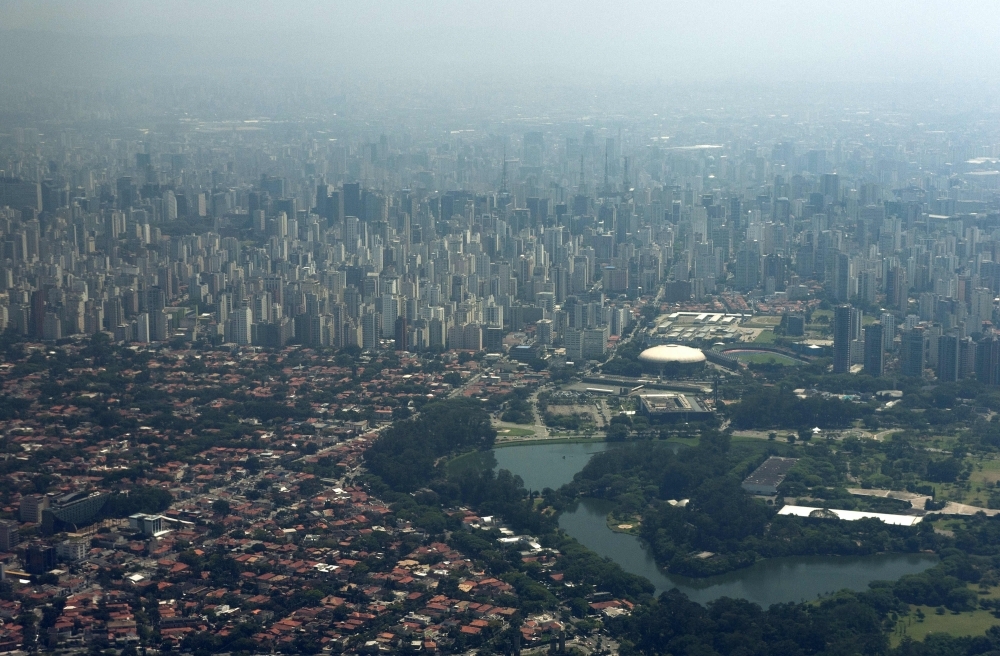

The capital of São Paulo State in Brazil was 12th in the 2015 ranking of the world's top 20 ecosystems for technology startups (photo: Eduardo César)
The capital of São Paulo State in Brazil was 12th in the 2015 ranking of the world's top 20 ecosystems for technology startups.
The capital of São Paulo State in Brazil was 12th in the 2015 ranking of the world's top 20 ecosystems for technology startups.

The capital of São Paulo State in Brazil was 12th in the 2015 ranking of the world's top 20 ecosystems for technology startups (photo: Eduardo César)
By Elton Alisson
Agência FAPESP – São Paulo in Brazil has a more favorable economic and business environment for technology startups than any other city in Latin America, according to Global Startup Ecosystem Ranking 2015.
The ranking was produced by Compass, a US-based firm that specializes in consulting for small and medium online businesses and has been surveying startups since 2012.
The capital of São Paulo State is the only Latin American city to figure in the ranking, which lists the top 20 ecosystems for startups worldwide. It ranked twelfth in the 2015 edition, one better than in the previous edition, published in 2012.
The number one slot is occupied by Silicon Valley in California, followed by New York, Los Angeles and Boston in the US. Tel Aviv in Israel ranks fifth.
The ranking does not include startup ecosystems from China, Taiwan, Japan or South Korea. The authors of the report blame difficulties in obtaining survey participants and complete data for Asian ecosystems due to the language barrier, adding that Beijing could rank in the top five and Shanghai in the top 15.
The index ranks cities’ startup ecosystems by five major components: performance, funding, talent, market reach and startup experience.
São Paulo’s strengths, according to the report, are market reach (because it is the economic capital of Latin America) performance, and funding for technology startups. The authors estimate that there are between 1,500 and 2,700 startups in activity in the city.
In 2014, for example, venture capital funds (VCs) invested more in tech startups in São Paulo than in Seattle in the US, and almost as much as in Tel Aviv.
Most of the VCs present in São Paulo, however, “have limited long-term experience [of tech startup funding], having only started their first investment cycle after 2009,” the report says.
São Paulo was also the third fastest growing startup ecosystem in the top 20, with a growth index of 3.5, behind only Berlin, Germany, with a growth index of 10, and Bangalore, India, with 4.9.
“São Paulo boasts the best talent of any South American startup ecosystem,” the report says. “Sectors such as e-commerce and SaaS [software as a service] remain strong in São Paulo, while new startups with more innovative business models are beginning to gain traction in the fields of mobile, marketplaces and services.”
Favorable environment
According to Fabio Kon, Full Professor at the Computer Science Department of the University of São Paulo’s Mathematics & Statistics Institute (IME-USP) and Head Coordinator of FAPESP’s Research for Innovation Panel, several factors have contributed to the creation of a favorable environment for startups in São Paulo in recent years.
One such factor is the increasingly active role played by public universities in São Paulo State in promoting entrepreneurship through courses and technological innovation centers (Núcleos de Inovação Tecnológica, NITs), including those set up at the Universities of São Paulo (USP) and Campinas (UNICAMP), as well as São Paulo State University (UNESP).
“FAPESP has made a key contribution by encouraging the public universities run by São Paulo State to activate their NITs, which have given rise to several startups,” he said.
Other factors cited by Kon are the attraction of VC investment, highlighted in the report, and official programs to support small and medium enterprises, such as FAPESP’s Innovative Research in Small Business program (PIPE).
FAPESP has approved 1,342 projects under the PIPE program since it was launched in 1997. Between 2011 and 2014, the number of proposals selected annually jumped from just over 40 to 120 and FAPESP’s investment in the program reached R$23.5 million last year.
“FAPESP is interested in stepping up its investment in the fostering of technological innovation by small business in São Paulo State through the PIPE program,” Kon said. “The program already supports a few dozen tech startups, but we’d like to double the number.”
Among the obstacles to growth in the number of startups in São Paulo noted by Kon and the authors of the Compass report are high costs, including taxation, and bureaucracy.
“As the city gears up to position itself not just as the Latin American startup capital, but a top 10 ecosystem, overcoming these problems will be essential,” according to the report.
An executive summary of the report can be read at blog.startupcompass.co/the-2015-global-startup-ecosystem-ranking-is-live.
Republish
The Agency FAPESP licenses news via Creative Commons (CC-BY-NC-ND) so that they can be republished free of charge and in a simple way by other digital or printed vehicles. Agência FAPESP must be credited as the source of the content being republished and the name of the reporter (if any) must be attributed. Using the HMTL button below allows compliance with these rules, detailed in Digital Republishing Policy FAPESP.





